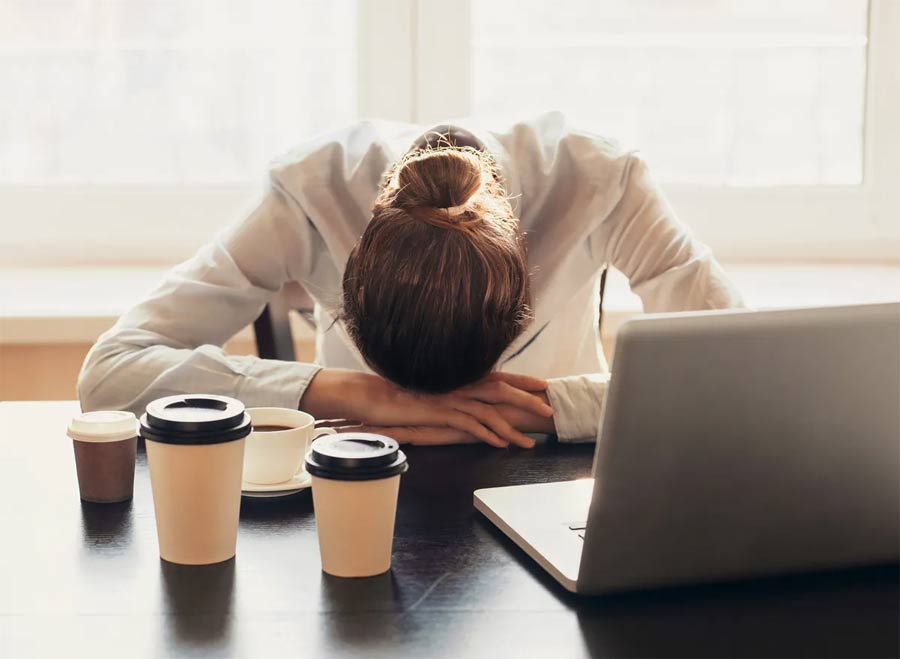Side Effects of Too Much Caffeine
Although caffeine is generally safe in low to moderate amounts, consuming large amounts can lead to unpleasant and even dangerous side effects. Here are some of the side effects of caffeine .

Coffee and tea are healthy beverages. Most contain caffeine, which can boost your mood, metabolism, and mental and physical performance. Studies also show that caffeine is safe for most people when consumed in low to moderate amounts. According to the Food and Drug Administration, most people can consume 400 mg of caffeine without experiencing any negative side effects.
However, high doses of caffeine can cause unpleasant and even dangerous side effects. Research has shown that your genes can influence your tolerance to caffeine. Some people can consume more caffeine than others without experiencing negative side effects.
Furthermore, people who are not used to caffeine may experience symptoms even with moderate amounts. Here are some side effects of consuming too much caffeine .
Worry
Caffeine is known to increase alertness. It works by blocking the effects of adenosine, a chemical in the brain that makes you feel tired. At the same time, it triggers the release of adrenaline, the ' fight or flight ' hormone associated with increased energy. However, at higher doses, these effects can become more pronounced, leading to anxiety and nervousness.
In fact, anxiety disorder is one of four caffeine-related syndromes listed in the Diagnostic and Statistical Manual of Mental Disorders (DSM), published by the American Psychiatric Association.
Extremely high daily intakes of 1,000 mg or more per day have been reported to cause anxiety, restlessness, and similar symptoms in most people, while even moderate intakes can lead to similar effects in caffeine-sensitive individuals.
If you find that you often feel jittery after drinking coffee or tea, you should consider your caffeine intake and cut back if necessary.

Insomnia
Caffeine's ability to keep people awake is one of its most prized qualities.
On the other hand, too much caffeine can make it difficult to get adequate restorative sleep.
Studies have found that higher amounts of caffeine appear to increase the time it takes to fall asleep. It may also decrease total sleep time.
These results suggest that it is important to pay attention to both the amount and timing of caffeine consumption to optimize your sleep.
Digestive problems
Many people find that a morning cup of coffee helps their bowels function better. The laxative effect of coffee is thought to be due to the release of gastrin, a hormone produced by the stomach that speeds up activity in the colon. Furthermore, decaffeinated coffee has been shown to produce a similar effect.
Given this effect, it's no surprise that large doses of caffeine can lead to loose stools or even diarrhea in some people.
Since coffee can have a big impact on digestive function, you may want to cut back on your coffee intake or switch to tea if you experience any problems.
Muscle loss
Rhabdomyolysis is a serious condition in which damaged muscle fibers leak into the bloodstream, leading to kidney failure and other problems.
Common causes of rhabdomyolysis include trauma, infection, drug abuse, etc. However, there have been some reports of rhabdomyolysis associated with excessive caffeine consumption, although this condition is relatively rare.

Addiction
While caffeine has many health benefits, there's no denying that it can be addictive.
A detailed review found that while caffeine activates some of the same brain chemicals as cocaine and amphetamines, it is not addictive in the same way that those drugs are. However, it can lead to psychological or physical dependence, especially at high doses.
Although this compound does not appear to be truly addictive, if you regularly drink a lot of coffee or other caffeinated beverages, there is a good chance you will become dependent on its effects.